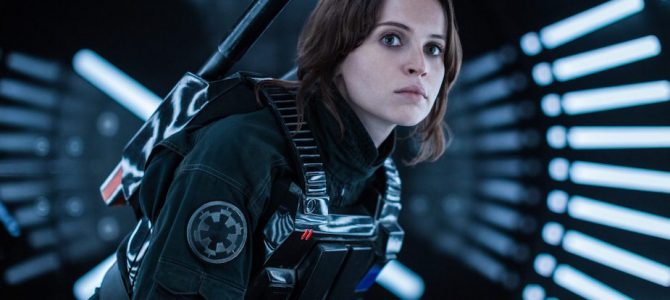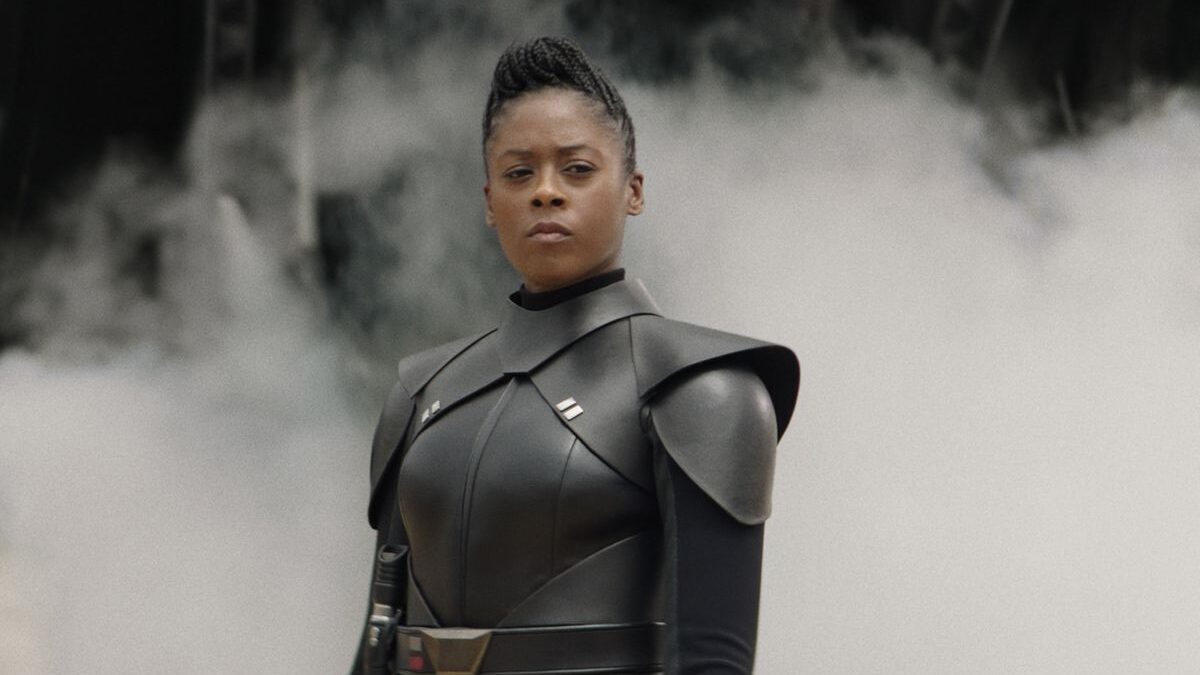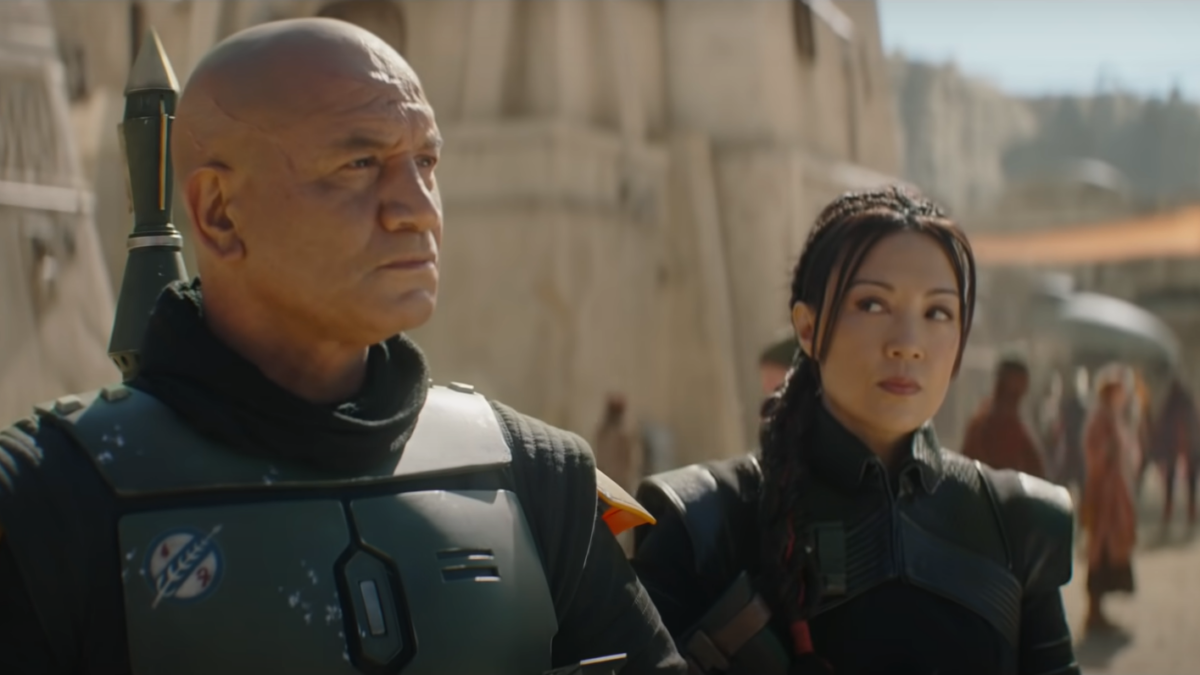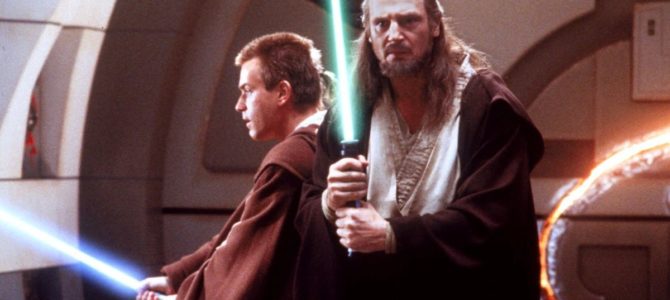
Minor Spoilers
I grew up watching The Lone Ranger. I would get up every Saturday morning, earlier than all the other kids, to watch a black and white western with Clayton Moore that hadn’t filmed a new episode since 1957. This was the American west with clearly delineated white hats and black hats. And I knew deep down, even in my Keds, that it wasn’t reality. The first time I watched The Magnificent Seven on TV on a Sunday afternoon, I knew it was going to be a different kind of Western. I knew it was one of the movies where not everybody would make it. This was still a fantasy, still not a representation of reality – but in this one, unlike everything I knew about The Lone Ranger episodes where all is made right with the world by the end, this would be one where a hero would die.
Rogue One does not feel like a Star Wars movie. There are no scrolling yellow letters. There is no classic John Williams score. It feels like a movie of a different type set in the Star Wars universe, a movie where there is no magic to save you. It is not a movie for children. There is humor, yes, of the dark sarcasm from a set of doomed characters. Sure, there are the pleasant easter eggs and the token cameos. But what you need to understand before you walk into Rogue One is this: This is the first Star Wars movie that is not a movie about Skywalkers. This is not a movie about the Jedi. This is not a movie about a Mary Sue – where Rey is a natural pilot, a genius at everything, making no mistakes and discovering her powers and commanding them at once. The heroes of Rogue One lose arguments. They miss shots. They crash ships. Jyn Erso is flawed, mistake prone, and mortal – but underneath it all, the more courageous.
Last year, we published a piece at The Federalist by Jonathan Last which outlined all his reasons why the Jedi are actually not the heroes of the Star Wars saga. One of the reactions to that piece was this, The Ballad of Porkins. It illustrates the insignificance of so many of the characters whose only narrative purpose is to be slaughtered in the background of this galactic war which the camera pretends comes down to members of a family line battling with ancient weapons instead of being a story about the path the Manhattan Project could’ve taken. This is the first Star Wars script to realize the Skywalkers are not the central storyline – that there is more going on in the background of this narrative than a dysfunctional family of space wizards. This is a movie about a group of flawed misfits without whom any of the Skywalker Family Drama you got to see play out would even exist.
The idea is better than the execution. This was a movie with multiple problems during production: they brought in Tony Gilroy to help Gareth Edwards with changes, editing, and reshoots. They had to drop Alexandre Desplat in favor of Michael Giacchino, who had to write a score in four weeks. There are multiple lines from the trailers that make no appearance in the film. The first act suffers from poor editing decisions, the second from too much darkness, and the script draws many of the sideline characters too small for you to care about them. You care by the end about at most three or four of them – mostly the droid. But that droid is the opposite of the cutesy, whirring and beeping BB-8. It is built to be a killer, and kill it does. And so does Darth Vader. His screen time is limited – he is not the main villain of this prologue – but there is a brief moment of cinematic horror where Vader shows you how he approaches the destruction of mortals he cares nothing about.
The film makes up for these inadequacies in a much better constructed third act. For the first time in a Star Wars film in decades, I felt like I could actually understand what was happening in a space battle, which found new angles and viewpoints to frame the action. Where the prequels made space battles seem like a giant mushy CGI blur and The Force Awakens had limited action (that mostly seemed to intentionally reference the past films), Rogue One doesn’t suffer from this defect. The action is clearer and unlike so many other films, you feel like there are actual risks faced by your band of heroes – not just a group of Stormtroopers to be dispatched faster than you can say “why have they used that crappy armor for decades”.
[The actual primary villain of Rogue One has barely appeared in publicity for the film, so we can talk about that later. But it brought to mind Stephen Kampa’s poem about the subject: “Once we’re dead / Men will inflect our names and pitch our voices / A second wave will second-guess our choices / We’ll all be reinterpreted / Victims of circumstance, dupes of some fad / Archived on YouTubes, Facebooks, and MySpaces / We’ll be our viewers’ comments and our faces / Whether for good or bad / Won’t be the faces that we had.”]
Many of you and particularly your children may have loved The Force Awakens, but you may not like Rogue One. It is not a movie for children or people who like childish movies. (As one example, we have the New Yorker’s film critic, who hates the film. “[In ‘Rogue One’, t]here’s none of the Shakespearean space politics, enticingly florid dialogue, or experiential thrills of the best of George Lucas’s ‘Star Wars’ entries (‘Attack of the Clones’ and ‘Revenge of the Sith’).” Ah.) I personally think TFA doesn’t hold up all that well on viewing it again – there are too many plot problems answered by “well, The Force”, and you might have forgotten how very dumb the First Order appears to be. But for the members of the Rogue One universe, The Force is unfamiliar. It’s about what awaits you beyond the grave. It is more religious, not about moving things with your mind but about a lost belief in the binding order of the universe, “the lining of the world” that sits behind all you perceive. But the characters of Rogue One are those who cannot see, and yet believe.
This film convinces me that the benefit of selling this franchise to Disney won’t be found in the primary series, but in one-off films that have the room to play with other approaches to the world these galactic characters inhabit – free, if for only a few hours, of Skywalkers. There were knights, and there were ladies, and there were soldiers in this war for the stars. This one is about the soldiers. And for all its flaws, that’s what these standalone movies should be about.









